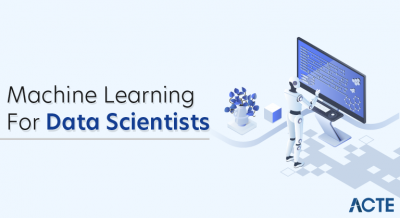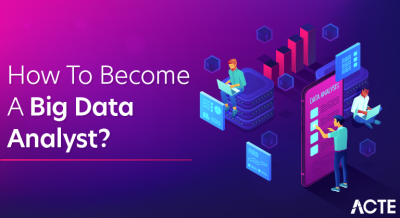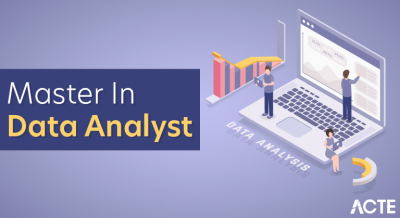
- Introduction to Data Science
- Key Skills Needed
- Important Programming Languages
- Tools and Technologies to Master
- Building a Portfolio
- Networking and Community Involvement
- Internships and Work Experience
- Interview Preparation
Introduction to Data Science
Data Science is a dynamic and multidisciplinary field that blends mathematics, statistics, computer science, machine learning, and domain-specific knowledge to derive valuable insights from data. It deals with both structured data (like databases) and unstructured data (such as images, text, and videos), enabling organizations to uncover patterns, make informed decisions, and solve complex problems. Data scientists use techniques ranging from data wrangling and exploratory analysis to predictive modeling and data visualization to turn raw data into actionable intelligence. In today’s data-driven world, businesses across industries such as healthcare, finance, retail, and technology are leveraging data science to gain a competitive edge, highlighting the importance of Data Science Training. Applications include predicting customer behavior, personalizing marketing strategies, detecting fraudulent transactions, optimizing logistics, and improving patient care. These capabilities not only improve efficiency but also drive innovation and customer satisfaction. With the exponential growth of big data, the demand for skilled data scientists has surged, making it one of the most sought-after and well-compensated careers. Organizations are heavily investing in data science tools, talent, and infrastructure to stay ahead in a rapidly evolving digital landscape. As industries continue to embrace digital transformation, data science will remain at the heart of strategic decision-making and technological advancement.
Do You Want to Learn More About Data Science? Get Info From Our Data Science Course Training Today!
Key Skills Needed
A successful data scientist must possess a balanced mix of technical expertise and soft skills to thrive in this fast-evolving field. On the technical side, a solid understanding of statistics and probability is essential for building and evaluating models. Proficiency in data wrangling helps clean and prepare raw data for analysis, while skills in data visualization tools like Matplotlib, Seaborn, or Tableau enable clear communication of insights key distinctions explored in Data Mining Vs. Machine Learning. Knowledge of machine learning algorithms, programming languages like Python or R, and database management using SQL are also fundamental for performing complex analyses and developing predictive models. However, technical skills alone are not enough. Analytical thinking is crucial for identifying patterns, drawing meaningful conclusions, and solving real-world business problems.
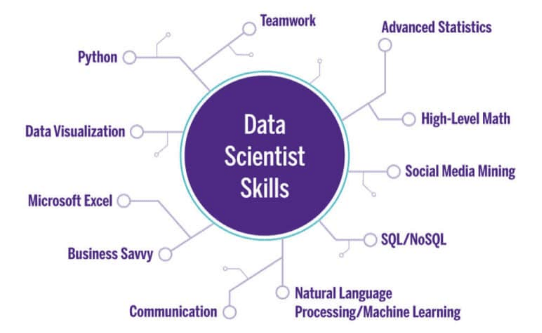
Equally important are communication skills data scientists must be able to translate complex technical results into actionable insights for non-technical stakeholders. A strong sense of business acumen helps align data projects with organizational goals and ensures that analyses address relevant challenges. Additionally, adaptability and a commitment to lifelong learning are vital in a field that constantly evolves with new tools, frameworks, and methodologies. The most effective data scientists continuously update their skills and remain curious and open to innovation in the ever-changing landscape of data science.
Important Programming Languages
- Python: The most popular language in data science due to its simplicity, vast libraries (like Pandas, NumPy, and Scikit-learn), and strong community support. It’s ideal for data analysis, machine learning, and automation.
- R: Known for its statistical analysis and visualization capabilities. R offers extensive packages like ggplot2 and dplyr, making it preferred in academia and research-heavy industries.
- SQL: Essential for managing and querying structured databases. SQL skills are crucial for extracting and manipulating data from relational databases efficiently.
- Java: Widely used for building large-scale, production-level applications, Java’s speed and scalability make it suitable for big data tools like Hadoop and Apache Spark, contrasting with the Advantages & Disadvantages of Python programming language.
- Scala: Often used with Apache Spark for big data processing. Scala combines object-oriented and functional programming, making it powerful for complex data pipelines.
- Julia: Gaining traction for its high-performance numerical computing capabilities. Julia is designed for speed and is useful in scientific computing and large-scale machine learning.
- MATLAB: Common in engineering and scientific research, MATLAB excels in matrix operations, simulations, and algorithm development.
- Python: The most popular programming language in data science, Python offers libraries like Pandas, NumPy, and Scikit-learn for data manipulation, analysis, and machine learning.
- R: A statistical programming language used for data analysis and visualization, R provides powerful packages like ggplot2 and caret, favored in academic and research settings.
- SQL: Crucial for querying and managing relational databases, understanding SQL enables efficient data extraction and manipulation, a foundational skill taught in Data Science Training.
- Jupyter Notebooks: An interactive computing environment that allows you to combine code, visualizations, and narrative text, making it perfect for exploratory data analysis and sharing results.
- Tableau/Power BI: Popular data visualization tools that help create interactive dashboards and reports, enabling non-technical stakeholders to understand data insights easily.
- Apache Hadoop/Spark: Frameworks for processing and analyzing large-scale datasets. These tools are vital for big data applications requiring distributed computing.
- Git/GitHub: Version control systems that help manage code collaboratively and track changes, essential for teamwork and maintaining reproducible projects.
- Knowledge Sharing: Participating in meetups, webinars, and conferences exposes you to the latest trends, tools, and techniques, helping you stay updated.
- Learning Opportunities: Engaging with peers and experts allows you to ask questions, get feedback, and learn from real-world experiences beyond textbooks.
- Career Growth: Networking can lead to job referrals, internships, or collaborations, opening doors to new career opportunities.
- Mentorship: Connecting with professionals provides guidance like knowing What is Normality Test in Minitab.
- Collaboration: Working with others on open-source projects or competitions like Kaggle fosters teamwork skills and enhances your portfolio.
- Building Reputation: Contributing to forums, blogs, or public repositories establishes your presence and credibility within the community.
- Support System: Being part of a community provides encouragement and motivation, especially when tackling difficult problems or learning new skills.
Would You Like to Know More About Data Science? Sign Up For Our Data Science Course Training Now!
Tools and Technologies to Master
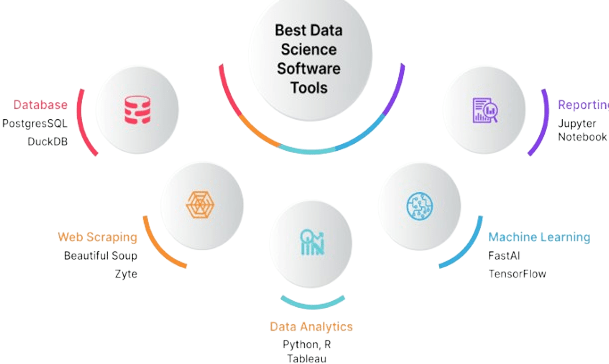
Building a Portfolio
Building a portfolio is a crucial step for anyone pursuing a career in data science. It serves as a personal showcase of your skills, allowing potential employers to see how you approach real-world problems and apply data science techniques. A strong portfolio demonstrates not only your technical abilities such as programming, data analysis, machine learning, and visualization but also your problem-solving skills and communication style. Your portfolio should include a variety of projects that reflect different areas of data science. This could range from data cleaning and exploratory analysis to predictive modeling and data storytelling, topics covered in Top Data Science Books for Beginners & Advanced Data Scientist. Choose datasets and problems that interest you or align with your desired industry, such as customer segmentation in retail, fraud detection in finance, or disease prediction in healthcare. Use publicly available datasets from sources like Kaggle, Data.gov, or the UCI Machine Learning Repository. Each project should be clearly documented. Include a brief overview, your objectives, the tools and techniques used, and the results or insights you discovered. Hosting your work on platforms like GitHub or creating a personal website or blog adds professionalism and makes your portfolio easily accessible. A well-rounded, thoughtfully presented portfolio not only strengthens your resume but also gives employers confidence in your ability to handle real-world data challenges.
Want to Pursue a Data Science Master’s Degree? Enroll For Data Science Masters Course Today!
Networking and Community Involvement
Internships and Work Experience
Internships and work experience play a vital role in launching a successful career in data science. While academic knowledge and personal projects provide a strong foundation, real-world experience allows aspiring data scientists to apply their skills in practical, business-focused environments. Internships offer exposure to actual datasets, team collaboration, and the opportunity to work on meaningful problems that impact an organization’s operations or strategy. During internships, individuals can gain hands-on experience with tools and technologies commonly used in the industry, such as Python, SQL, machine learning frameworks, and data visualization platforms, highlighting Reasons You Should Learn R, Python, & Hadoop. They also learn important soft skills like communication, time management, and cross-functional teamwork, all of which are critical for success in a professional setting. Work experience, whether through internships, freelance projects, or entry-level roles, helps build confidence and enhances your portfolio with real business applications. It also provides valuable insights into industry-specific challenges, helping you develop domain knowledge that can set you apart from other candidates. Moreover, internships often serve as a stepping stone to full-time opportunities. Many companies prefer hiring candidates who have already proven their capabilities during an internship. In a competitive field like data science, practical experience is not just beneficial it’s essential for career growth and long-term success.
Want to Learn About Data Science? Explore Our Data Science Interview Questions & Answer Featuring the Most Frequently Asked Questions in Job Interviews.
Interview Preparation
Effective interview preparation is essential for landing a role in data science, a field that demands both technical expertise and clear communication. The interview process typically includes multiple stages starting with a resume screening, followed by technical assessments, coding interviews, case studies, and behavioral questions. Preparing thoroughly for each stage can significantly increase your chances of success. Start by reviewing core concepts in statistics, probability, machine learning, data wrangling, and algorithms. Practice solving coding problems on platforms like LeetCode, HackerRank, or CodeSignal, with a focus on Python or R, as these are commonly used in the industry. Refresh your knowledge of SQL, as data manipulation and querying are often tested in Data Science Training. Equally important is the ability to explain your thinking clearly. Be prepared to walk through past projects in your portfolio discussing your goals, tools used, methodologies, challenges, and results. Employers look for candidates who can not only build models but also interpret and communicate their outcomes to non-technical stakeholders. Don’t overlook behavioral questions. Prepare examples that demonstrate your problem-solving abilities, teamwork, and adaptability. Research the company thoroughly to align your responses with their values and mission. Consistent practice, mock interviews, and targeted preparation are key to standing out and securing your desired data science role.


